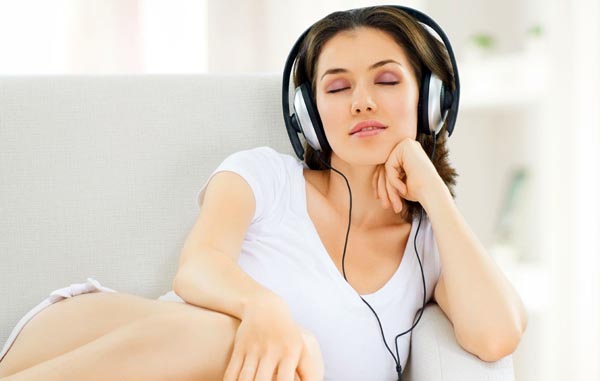Musical therapy is a method to recuperate health and cultivate the mind for the promotion of somatopsychic rehabilitation by asking patients to appreciate music. As early as over two thousand years ago, classics such as Yueji, or Records of Music and Neijing, or Canon of Medicine carried the account of promoting health with music.
1. Principles of life cultivation and rehabilitation with music
Music exerts effects on the human psychology and physiology through the four major elements of the tune, rhythm, melody, loudness and harmony. Psychologically, music influences people's emotions and behavior by means of artistic appeal. It straightens people out with sentiments to regulate emotional activities. Music with strongly accented rhythms can inspire people; beautiful music with gentle melodies can make people light-hearted, happy and calm; deep and sad music can make people depressed and worried. More information about Chinese medicine, please read TCM Diagnosis for Prostatitis.

Physiologically, different scales have different actions as well. Music, the sound wave vibration with given frequency, exerts effects on the human body to make the rhythm of every organ harmonized. Besides, sound exerts effects on the auditory organ and auditory nerve. It further influences the muscle tension, blood circulation and visceral activities. In short, music can regulate emotions, coordinate visceral functions, promote normal qi flow and blood circulation to achieve the purpose of life cultivation and rehabilitation. More information about Chinese medicine, please read Symptoms of Prostatitis in TCM.
2. Commonly-used musical prescriptions
(1) Prescriptions for expressing emotions and removing worries: Select beautiful songs with lively rhythms, smooth melodies and happy emotional appeal. For instance, Bubugao (Higher and Higher), Xiyangyang (Jubilance), Don't Worry, Don't Worry! The Golden Water River, and Sea Beach during the Holiday, etc. This type of songs may be applicable to various diseases due to emotional depression.
(2) Prescriptions for tranquilizing the mild: Select songs with slow rhythms, mild and sweet melodies and gentle emotional appeal. For example, The Night of Spring Sea with Flowers and the Moon, the Swallow Flies down the Sandy Beach as well as Calm Lake with the Autumnal Moon, How Wonderful! The South of the Yangtze, etc. This kind of songs has the actions of relieving mental stress, tranquilizing the mind and removing worries. These songs are applicable to various diseases concerning restlessness with anxiety and vexation. More information about Chinese medicine, please read Chinese medicine Treatment for Symptoms of Prostatitis.
(3) Prescriptions for inspiring and arousing people: Select songs with strongly accented and forceful rhythms, sonorous and arousing melodies, majestic or solemn and stirring tunes. For example, The Yellow River Cantata, March of the Volunteers, etc. This type of songs possesses the actions of arousing emotions, increasing courage and inspiring people. These songs can be applicable to various diseases concerning low-spiritedness, pessimism and disheartenedness.
(4) Prescriptions for inhibiting mania and anger: Select songs with slow rhythms, deep melodies, mournful and sorrowful tunes. For instance, Sea Water, Dirge, Bury Flowers, the Homeless Singing Girl, and the Han Palace Below the Autumnal Moon, etc. This kind of songs has the actions of inhibiting mania and anger, relieving emotional excitement. They are applicable to patients with extreme emotional activities, irascibility, endless laughing and mania. More information about Chinese medicine, please read TCM Treatment Evaluation for Prostatitis.
(5) Prescriptions for improving intelligence: Select songs with gay emotions, elegant melodies and quicker rhythms to improve children's and juvenile intelligence. For example, Horse Race, Happy Russell, Fantasia, Spring of Xinjiang, and Cuckoo Waits, etc. Select songs which people were familiar with or loved when they were infants or young to improve mid-aged and old people's intelligence. The songs may vary in people. Guide people to listen and recall something. These songs may delay cerebral ageing of patients, evoke the lost memories and help the rehabilitation of patients with dementia.
Musical therapy can be conducted twice or thrice a day, 30 to 60 minutes each time. The volume should be moderate. The environment should be elegant, peaceful and cozy, free from the interference of noises. If the conditions permit, the effects can be improved with the corresponding cooperation of lights, colors, flowers, etc. If the conditions permit, patients may be encouraged to adopt active methods such as playing musical instruments, singing and composing musical works.







